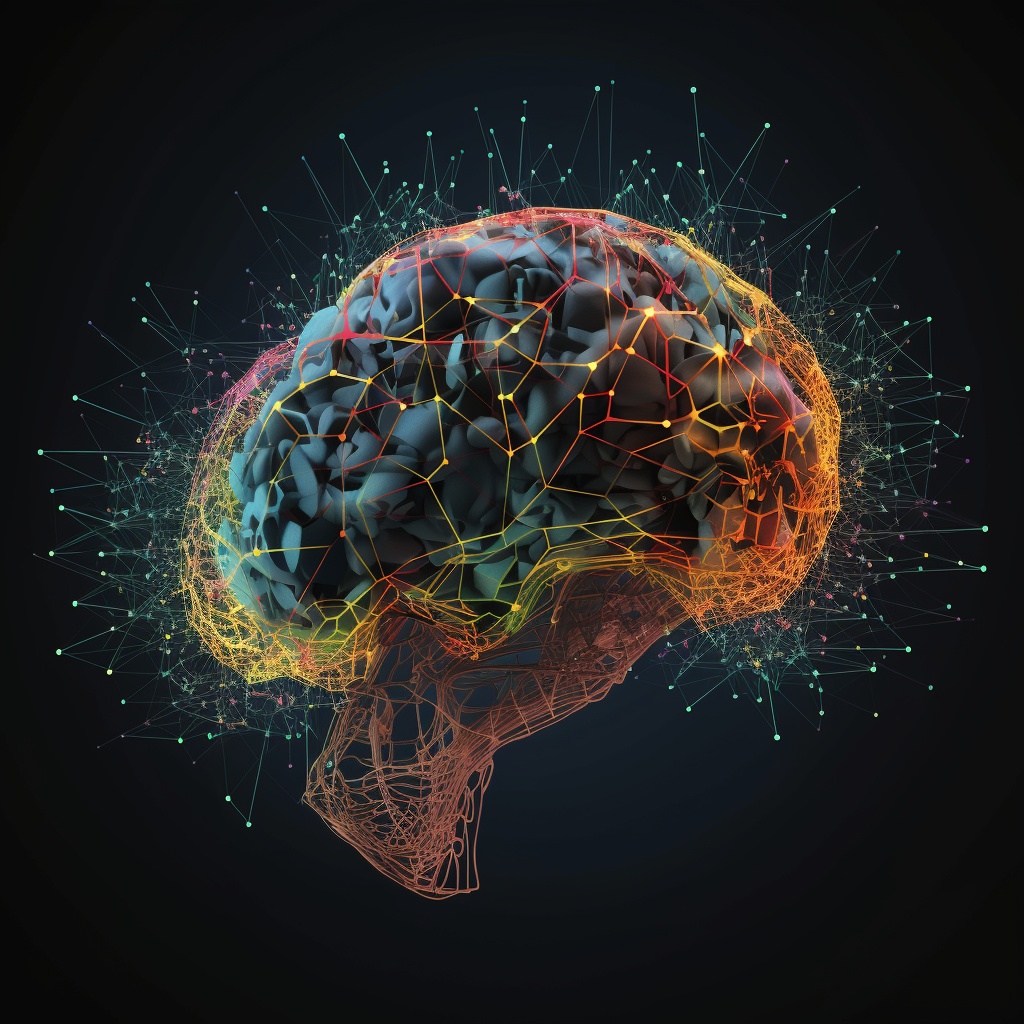How the Cognitive Trap Shapes Our Beliefs, Decisions, and Society
We all have our beliefs and opinions, shaped by our experiences and the information we consume. But have you ever noticed how easy it is to gravitate toward information that reinforces what you already think? That’s called confirmation bias, and it’s a common cognitive trap we all fall into.
At its core, confirmation bias is the tendency to seek out, interpret, and remember information in a way that confirms our preexisting beliefs. This can lead to a narrow view of the world, limiting our understanding and decision-making abilities. In psychology, this phenomenon is significant because it highlights how our minds can sometimes work against us, preventing growth and critical thinking.
The Three Faces of Confirmation Bias: How We Skew Our Reality

When we discuss confirmation bias, it’s crucial to understand that it’s not a one-size-fits-all phenomenon. In fact, this manifests in three distinct ways, each influencing how we interact with information at different stages of our thought process.
1. Biased Search for Information
The first type of confirmation bias occurs before we even begin to process new information. It’s the tendency to seek out sources that we believe will confirm our existing views. Think about the last time you researched a controversial topic. Did you find yourself gravitating towards articles or videos that aligned with your preexisting beliefs? That’s biased information searching in action.
I’ve caught myself doing this when researching health topics. If I have a hunch about a particular diet or exercise regimen, I’ll often start by looking for studies that support my initial thoughts. It’s a natural inclination, but it can lead to a skewed understanding of the subject.
To combat this, try consciously seeking out opposing viewpoints when researching a topic. It might feel uncomfortable at first, but it’s an excellent way to ensure you’re getting a more balanced perspective.
2. Biased Interpretation of Information
Even when we encounter information from diverse sources, our brains have a sneaky way of interpreting that information to fit our existing beliefs. This is the second type of confirmation bias. For instance, two people with opposing political views might watch the same debate but come away with completely different interpretations of who “won” or what points were most salient. Each person’s preexisting beliefs color their interpretation of the event.
To mitigate this bias, try to approach new information with genuine curiosity rather than immediately looking for ways to confirm or refute your existing beliefs. Ask yourself,
“How would someone with a different perspective interpret this?”
3. Biased Recall of Information
The third type of confirmation bias affects how we remember information. Our brains tend to more easily recall information that supports our existing beliefs while conveniently “forgetting” contradictory evidence. This can be particularly insidious because it happens unconsciously. You might genuinely believe you’re remembering all the relevant facts about a topic, but in reality, your memory is selectively emphasizing information that aligns with your views.
To address this, consider keeping a journal or log of important information, especially on topics where you have strong opinions. This external record can help counteract your brain’s tendency to selectively remember information. Understanding these three types of confirmation bias is crucial for developing a more balanced and objective worldview. By recognizing how we search for, interpret, and recall information, we can take active steps to counteract these biases.
Remember, the goal isn’t to eliminate these biases entirely – that’s likely impossible. Instead, aim for awareness and conscious effort to broaden your perspectives. By doing so, you’ll make more informed decisions and develop a richer understanding of the complex world around us.
Real-World Examples and Implications of Confirmation Bias

Confirmation bias significantly shapes our lives and society in ways that often go unnoticed. At a personal level, it can lead us to make decisions based on incomplete or skewed information. For example, when we’re considering a major life choice—like a job change or a relationship—we might only seek out advice or information that aligns with our initial feelings. This selective gathering of evidence can create a false sense of security, leading us to overlook potential risks or red flags. As a result, we may find ourselves stuck in situations that are less than ideal simply because we weren’t willing to entertain opposing viewpoints.
On a societal scale, confirmation bias plays a crucial role in how public opinion is formed and maintained. In an age where social media algorithms curate our news feeds, people are increasingly exposed to information that reinforces their existing beliefs. This creates echo chambers where dissenting opinions are not only ignored but actively dismissed. The implications are profound: as groups become more polarized, constructive dialogue diminishes, making it difficult to address pressing societal issues like climate change, healthcare reform, or social justice. When individuals are unwilling to engage with alternative perspectives, it stifles innovation and progress.
In politics, confirmation bias can lead to dangerous outcomes. Politicians and their supporters often exploit this tendency by framing issues in ways that resonate with their base while disregarding facts that contradict their narrative. This manipulation can perpetuate misinformation and create an environment where facts become secondary to beliefs. The result? A fragmented society where compromise becomes nearly impossible, and the democratic process is undermined.
Confirmation bias has serious implications in scientific research and public health. Researchers may unconsciously design studies that favor their hypotheses or selectively report results that confirm their expectations. This not only hampers scientific progress but can also lead to public health policies based on flawed data. For instance, during health crises like the COVID-19 pandemic, confirmation bias caused individuals to cling to misinformation or propaganda about treatments or vaccines.
In business, confirmation bias can hinder innovation and adaptability. Companies may resist changing strategies because they focus on data that supports their current approach while ignoring signs that indicate a need for change. This reluctance can lead to missed opportunities in rapidly evolving markets, ultimately affecting profitability and sustainability.
Understanding the far-reaching implications of confirmation bias is essential for fostering critical thinking and open-mindedness in both personal and societal contexts. By recognizing how this cognitive bias influences our decisions, interactions, and beliefs, we can begin to challenge our own assumptions and engage more thoughtfully with the world around us. Addressing confirmation bias is not just an intellectual exercise; it’s a necessary step toward creating a more informed and cohesive society capable of tackling complex challenges together.
In Scientific Research
The scientific method is often lauded as a paragon of objectivity, designed to eliminate bias and produce reliable knowledge. However, the reality is more complex. Even in this field, where rigorous protocols and peer review are meant to ensure impartiality, confirmation bias can still exert a subtle yet powerful influence.
At the outset, researchers may inadvertently design studies that are more likely to confirm their hypotheses rather than challenge them. For example, in a landmark study by Lord, Ross, and Lepper (1979), participants were presented with mixed evidence about the deterrent effects of capital punishment. Those who initially supported the death penalty tended to find the pro-deterrence evidence more convincing, while opponents found the anti-deterrence evidence more compelling. This demonstrates how pre-existing beliefs can shape the interpretation of data, even among those trained in scientific thinking.
During data collection and analysis, researchers might unconsciously give more weight to results that align with their expectations. A classic example is the case of N-rays, a supposed form of radiation discovered by French physicist René Blondlot in 1903. Despite the inability of other scientists to replicate his findings, Blondlot and his supporters continued to “observe” N-rays for years. It was later shown that the observations were purely subjective, influenced by the researchers’ expectations.
In the interpretation of results, confirmation bias can lead scientists to dismiss contradictory findings as anomalies or experimental errors, while accepting confirming results with less scrutiny. The history of continental drift theory illustrates this point. When Alfred Wegener proposed the theory in 1912, it was met with skepticism by the scientific community. Despite mounting evidence in its favor, many geologists continued to reject the idea for decades, interpreting new data within the framework of their existing beliefs about stationary continents.
Publication bias, where studies with positive results are more likely to be published than those with negative or null findings, can further exacerbate the problem. This “file drawer problem,” as described by Rosenthal (1979), can lead to a skewed representation of evidence in the scientific literature.
The consequences of confirmation bias in science can be significant. It can lead to the persistence of incorrect theories, wasted resources on misguided research, and delays in scientific progress. For instance, the dominance of behaviorism in psychology for much of the 20th century, despite mounting evidence of its limitations, delayed the development of cognitive psychology.
Addressing confirmation bias in science requires ongoing vigilance and structural changes. Practices such as pre-registration of studies, blind data analysis, and increased emphasis on replication studies can help mitigate its effects. Additionally, fostering a scientific culture that values skepticism, including self-skepticism, is crucial.
While the scientific method is our best tool for understanding the world objectively, it is not immune to human cognitive biases. Recognizing the potential for confirmation bias in scientific research is the first step towards developing more robust practices that can lead to more reliable and unbiased scientific knowledge.
Politics and Media Consumption
Perhaps nowhere is confirmation bias more evident than in politics and media. In today’s polarized political climate, people often gravitate towards news sources and social media feeds that reinforce their existing beliefs. This creates echo chambers where individuals are rarely exposed to opposing viewpoints. As a result, political opinions become more extreme, and the ability to engage in constructive dialogue with those who hold different views diminishes.
The rise of personalized news feeds and recommendation algorithms exacerbates this problem. These technologies, while designed to enhance user experience, can inadvertently reinforce our biases by showing us more of what we already agree with.
The implications of this are far-reaching. Political polarization can lead to gridlock in government, social unrest, and a breakdown in the shared reality necessary for a functioning democracy.
Personal Decision-Making
On a more individual level, confirmation bias can significantly impact our personal decisions. From career choices to relationships, our tendency to seek out confirming information can lead us astray.
The influence of confirmation bias on personal decision-making can have profound and far-reaching consequences, often leading individuals to maintain suboptimal or even harmful situations due to selective perception and interpretation of information.
In romantic relationships, confirmation bias can manifest as a form of cognitive blindness to potential problems. For instance, a study by Gagné and Lydon found that individuals in romantic relationships tend to perceive their partners more positively than reality warrants, a phenomenon known as “positive illusions.” While this can have some benefits for relationship satisfaction in the short term, it can also lead to ignoring significant issues.
Consider the case of Sarah, a 32-year-old professional who entered a relationship with Mark, initially attracted by his charm and ambition. Despite early signs of controlling behavior and emotional volatility, Sarah focused on moments that confirmed her initial positive impression. She interpreted Mark’s jealousy as a sign of deep affection and his career setbacks as temporary obstacles, dismissing friends’ concerns as misunderstandings. This selective attention to positive traits while minimizing red flags led Sarah to remain in an increasingly toxic relationship for years, significantly impacting her emotional well-being and professional life.
In the business world, confirmation bias can lead to costly strategic errors. The phenomenon of escalation of commitment, described by Staw (1976), illustrates how decision-makers can become entrapped in failing courses of action. A classic example is the case of Kodak, a company that dominated the photography market for decades. Despite early awareness of the potential of digital photography (having invented the first digital camera in 1975), Kodak’s leadership continued to focus on their traditional film business. They interpreted the slow initial adoption of digital cameras as confirmation that film would remain dominant, ignoring the exponential growth trends in digital technology. This bias towards information that confirmed their existing business model led to a series of missed opportunities and eventual bankruptcy in 2012.
Another illustrative case is that of Blockbuster Video’s response to the rise of Netflix. Despite early opportunities to acquire Netflix or develop a competing streaming service, Blockbuster’s leadership focused on data that confirmed the continued viability of their brick-and-mortar rental model. They interpreted the initial slow adoption of streaming services as confirmation of customer preference for physical rentals, dismissing the long-term trend towards digital consumption. This selective attention to confirming information while dismissing contradictory market trends ultimately led to Blockbuster’s demise.
These examples underscore how confirmation bias can lead individuals and organizations to maintain failing strategies or relationships by selectively attending to information that confirms pre-existing beliefs or desired outcomes. The tendency to seek out confirming evidence while dismissing or devaluing contradictory information can create a false sense of security or progress, delaying necessary changes or exits from unfavorable situations.
Mitigating the effects of confirmation bias in personal and professional decision-making requires active strategies. These might include seeking diverse perspectives, regularly challenging one’s assumptions, and implementing structured decision-making processes that force consideration of contradictory evidence. By recognizing the potential for confirmation bias, individuals and organizations can work towards more balanced, reality-based assessments of their situations, leading to better outcomes in both personal relationships and business strategies.
These biased decisions can result in missed opportunities, financial losses, or personal disappointments. They can also prevent personal growth by keeping us locked in familiar but potentially harmful patterns of behavior.
In all these areas – scientific research, politics and media consumption, and personal decision-making – confirmation bias acts as a barrier to truth and progress. It limits our perspective, reinforces existing beliefs (whether correct or not), and can lead to poor outcomes on both individual and societal levels.
Recognizing the presence and impact of confirmation bias in these real-world contexts is the first step towards mitigating its effects. By understanding how it influences various aspects of our lives, we can begin to develop strategies to counteract it and make more informed, balanced decisions.
Psychological Mechanisms Behind Confirmation Bias

Confirmation bias is deeply rooted in our cognitive processes. Understanding these mechanisms can help us recognize and mitigate this bias in our thinking. Let’s explore three key psychological drivers behind confirmation bias:
Cognitive Efficiency and Mental Shortcuts
The human brain’s capacity to process information, while remarkable, is not infinite. We are constantly inundated with a vast array of stimuli and data points, far more than we can consciously analyze in real-time. In this context, confirmation bias emerges not merely as a flaw in our cognitive architecture, but as an adaptive mechanism that allows for efficient information processing and decision-making in a complex world.
This cognitive shortcut, rooted in our evolutionary history, serves as a form of mental triage. It allows us to rapidly categorize and interpret new information by aligning it with our existing knowledge structures and beliefs. This process, known as assimilation in Piaget’s theory of cognitive development, is crucial for maintaining cognitive consistency and reducing the mental load associated with constant reevaluation of our worldviews.
However, the efficiency gained through confirmation bias comes at a significant cost to accuracy and objectivity. By preferentially seeking and interpreting information that confirms our preexisting beliefs, we risk creating a self-reinforcing cycle of cognitive bias. This can lead to a distorted perception of reality, where contradictory evidence is systematically overlooked or dismissed, regardless of its merit or importance.
More recently, the replication crisis in psychology and other social sciences has highlighted the pervasive nature of confirmation bias in research. A landmark study by the Open Science Collaboration in 2015 attempted to replicate 100 psychological studies and found that only 36% of the replications yielded statistically significant results, compared to 97% of the original studies. This discrepancy suggests that researcher expectations and publication bias may have inflated the number of false positive results in the original studies.
Self-Esteem Protection
Self-esteem protection through confirmation bias is a profound psychological mechanism that extends far beyond mere comfort-seeking. It is intricately woven into the fabric of our identity and social belonging, playing a crucial role in maintaining psychological stability and coherence.
The human psyche has evolved to prioritize consistency and predictability, as these qualities contribute to our sense of security and competence in navigating the world. Our beliefs and worldviews form the foundation of this cognitive framework, acting as a lens through which we interpret reality. When these core beliefs are challenged, it triggers a state of cognitive dissonance, a psychological discomfort that arises from holding conflicting beliefs or behaviors.
Leon Festinger’s seminal work on cognitive dissonance theory in the 1950s laid the groundwork for understanding this phenomenon. His famous study of a doomsday cult, documented in “When Prophecy Fails” (1956), demonstrated how individuals can go to extraordinary lengths to maintain their beliefs in the face of contradictory evidence. When the cult’s prophecy of an apocalyptic flood failed to materialize, instead of abandoning their beliefs, many members became even more fervent, rationalizing the failure and seeking to recruit new followers. This extreme example illustrates the powerful role of confirmation bias in protecting one’s worldview and, by extension, one’s self-esteem.
In professional settings, confirmation bias can manifest as the “sunk cost fallacy,” where individuals or organizations continue to invest in failing projects or strategies because admitting failure would threaten their self-image as competent decision-makers. A notable example is the continued development of the Concorde supersonic airliner by the British and French governments long after it became clear that the project was economically unviable. The desire to protect national pride and the self-esteem tied to the project’s success led to continued investment, resulting in significant financial losses.
The role of confirmation bias in self-esteem protection is particularly evident in the formation and maintenance of conspiracy theories. Research by Swami et al. (2016) found that belief in conspiracy theories is positively correlated with the need for uniqueness and the desire to maintain a positive self-image. By subscribing to alternative explanations for complex events, individuals can position themselves as possessing special knowledge, thereby enhancing their self-esteem and sense of control in an uncertain world.
In academic contexts, confirmation bias can lead to what is known as the “backfire effect,” where presenting individuals with facts that contradict their beliefs can actually strengthen those beliefs. A study by Nyhan and Reifler (2010) found that when presented with corrective information, politically motivated reasoning led some participants to become even more entrenched in their incorrect beliefs. This demonstrates how deeply intertwined our beliefs can be with our sense of self, making the acceptance of contradictory information a threat not just to our ideas, but to our very identity.
The implications of this aspect of confirmation bias are far-reaching. In an era of increasing polarization and echo chambers, the tendency to seek out information that confirms our existing beliefs not only reinforces those beliefs but also deepens social divisions. As individuals become more invested in their ideological identities, the psychological cost of changing their minds increases, making constructive dialogue and consensus-building increasingly challenging.
Addressing this aspect of confirmation bias requires more than just exposure to diverse viewpoints. It necessitates creating environments where individuals feel psychologically safe to question their own beliefs without feeling that their entire identity is under threat. Techniques such as self-affirmation, where individuals reflect on their core values before engaging with challenging information, have shown promise in reducing defensive responses to contradictory evidence.
The role of confirmation bias in protecting self-esteem is a complex and deeply ingrained psychological mechanism. While it serves an important function in maintaining psychological stability, its unchecked influence can lead to rigid thinking, polarization, and resistance to personal and societal growth. Recognizing this aspect of confirmation bias is crucial for developing strategies to promote more open-minded and constructive engagement with diverse perspectives and challenging information.
Desire to Be Correct
Humans have a strong desire to be right. This drive can lead us to seek out information that confirms our beliefs and ignore or dismiss contradictory evidence. It’s not just about protecting our self-esteem; it’s about validating our ability to understand and navigate the world correctly.
This desire to be correct can manifest in various ways. In personal decision-making, for instance, someone might continue with a failing business strategy because they’re focused only on the few positive outcomes while dismissing the overall negative trend. They want to prove that their initial decision was correct.
In social settings, this mechanism can lead to the “my-side bias,” where people generate and remember more reasons supporting their side of a controversial issue than the opposing side. This bias persists even when individuals are capable of generating counter-arguments when explicitly asked to do so.
Understanding these psychological mechanisms is crucial in our efforts to combat confirmation bias. By recognizing that our minds naturally gravitate towards confirming information for efficiency, self-protection, and validation, we can start to consciously counteract these tendencies.
It’s important to note that these mechanisms often operate subconsciously. We’re not actively choosing to ignore contradictory information or seek out confirming evidence. Rather, these are deeply ingrained cognitive processes that have evolved over time.
Awareness of these mechanisms is the first step towards mitigating confirmation bias. By understanding why our minds behave this way, we can develop strategies to actively seek out diverse perspectives, critically evaluate our own beliefs, and make more balanced, informed decisions.
Spotting Your Own Blind Spots: Recognizing Confirmation Bias

Let’s face it – we’re all guilty of confirmation bias at times. It’s like having a stubborn friend in our head who always agrees with us. But how do we catch ourselves in the act? Here’s the lowdown on spotting this sneaky cognitive trick.
Red Flags to Watch For
First off, pay attention to your gut reactions. If you find yourself nodding along to every word of an article or immediately dismissing opposing views without really considering them, that’s a big ol’ red flag. It’s like your brain is throwing a party and only inviting ideas it likes.
Another telltale sign? The “Yeah, but…” syndrome. You know, when someone presents a valid counterargument and your immediate response is to find reasons why it doesn’t apply. It’s like your brain is playing mental gymnastics to avoid changing its mind.
Oh, and let’s not forget the classic echo chamber effect. If you suddenly realize all your news sources, social media feeds, and even friends are singing the same tune, you might be deep in confirmation bias territory. Time to shake things up!
Getting Real with Yourself
Now, onto the tricky part – self-assessment. It’s not easy to call yourself out, but it’s worth it. Try this: next time you’re researching a topic you care about, pause halfway through. Ask yourself, “Am I actually looking for information, or am I just hunting for stuff that proves I’m right?” Be honest – no one’s grading you here.
Another nifty trick is the “flip it” technique. Take your strongest belief and try arguing against it. Feels weird, right? That discomfort is your brain resisting ideas that don’t fit its narrative. Push through it – you might surprise yourself.
Here’s a fun one: create a “belief challenge” day. Pick a day to actively seek out information that contradicts your views. It’s like taking your brain to the gym – uncomfortable at first, but it gets stronger with practice.
Lastly, don’t go it alone. Ask a friend (preferably one who doesn’t always agree with you) to call you out when you’re being stubborn. Sometimes we need an outside perspective to spot our own biases.
Remember, the goal isn’t to become a flip-flopping opinion machine. It’s about opening your mind to new ideas and understanding why you believe what you believe. It’s not always comfortable, but hey, growth rarely is. So go on, challenge those beliefs – your future, wiser self will thank you for it!
Strategies to Mitigate Confirmation Bias

Confirmation bias is a stubborn foe, but it’s not unbeatable. To effectively combat this cognitive pitfall, we need a multi-faceted approach that challenges our thinking patterns and broadens our perspectives.
Critical thinking and skepticism form the foundation of this approach. It’s about developing a habit of questioning, not just the information we encounter, but also our own reactions to it. When we come across a piece of news or an opinion that aligns perfectly with our views, that’s precisely when we should pause and ask, “Why do I agree with this so readily?” This doesn’t mean becoming cynical about everything, but rather cultivating a healthy dose of doubt that prompts us to dig deeper.
Seeking diverse perspectives is crucial in this process. It’s all too easy to surround ourselves with like-minded individuals and information sources that echo our existing beliefs. Breaking out of this echo chamber can be uncomfortable, but it’s necessary for growth. This might involve following social media accounts with different viewpoints, reading news from various sources across the political spectrum, or engaging in respectful debates with people who hold opposing views. The goal isn’t to change your mind on every issue, but to understand why others think differently and to challenge your own assumptions.
Rigorous research methods and peer review are powerful tools, especially when dealing with complex or controversial topics. This means going beyond surface-level information and diving into primary sources, academic studies, and expert analyses. When researching a topic, look for meta-analyses that synthesize multiple studies rather than relying on a single source. Pay attention to the methodology of studies, their sample sizes, and potential conflicts of interest. Remember, a single study rarely tells the whole story – it’s the accumulation of evidence over time that builds a reliable body of knowledge.
Peer review, while not infallible, adds an extra layer of scrutiny to scientific findings. It ensures that experts in the field have examined the research for flaws in methodology, interpretation, or conclusions. When reading about scientific discoveries or medical breakthroughs, check if the research has been peer-reviewed and published in reputable journals. Be wary of sensationalized headlines that often oversimplify or exaggerate scientific findings.
Implementing these strategies requires effort and a willingness to step out of our comfort zones. It might mean spending more time researching before forming an opinion, or admitting that we don’t know enough about a topic to have a strong stance. This can be humbling, but it’s also liberating. By embracing uncertainty and the complexity of issues, we open ourselves up to new insights and a more nuanced understanding of the world.
One practical way to put these strategies into action is to regularly challenge your own beliefs. Pick a topic you feel strongly about and spend some time earnestly exploring opposing viewpoints. Try to articulate these opposing arguments as convincingly as you can – this exercise can reveal blind spots in your own reasoning.
Another helpful practice is to engage in collaborative fact-checking with friends or colleagues who have different viewpoints. When discussing a contentious issue, work together to verify claims from various sources. This not only improves the quality of information you’re working with but also fosters an environment of open inquiry and mutual respect.
It’s important to remember that overcoming confirmation bias is an ongoing process, not a one-time fix. Our brains are wired to seek confirmation of our beliefs, and it takes constant vigilance to counteract this tendency. However, with practice, these strategies can become habits that lead to more balanced thinking and better decision-making.
By embracing critical thinking, diverse perspectives, and rigorous research methods, we equip ourselves to navigate the complex information landscape of the modern world. We become better able to distinguish between reliable information and misleading claims, to understand nuanced issues rather than relying on oversimplified narratives, and to make decisions based on a more complete picture of reality.
Misinformation spreads rapidly and echo chambers are easily formed, these skills are more important than ever. By managing our own confirmation biases, we take a step towards more constructive dialogue, better policy-making, and a shared understanding of the complex challenges we face.
The Debate: Is Confirmation Bias Always Harmful?

The debate over whether confirmation bias is always harmful is a nuanced one, with recent research suggesting that this cognitive tendency may have some adaptive functions. On one hand, confirmation bias has long been viewed as a cognitive flaw that can lead to poor decision-making, entrenched beliefs, and resistance to new information. It can contribute to polarization in politics, persistence of misinformation, and errors in scientific reasoning. These negative impacts are well-documented and shouldn’t be understated.
However, recent studies have proposed that confirmation bias might serve some adaptive purposes. One intriguing hypothesis suggests that confirmation bias could be beneficial when coupled with good metacognition – our ability to reflect on and assess our own thoughts and knowledge. Researchers have found that when individuals have high metacognitive efficiency (i.e., they’re good at knowing when they’re likely to be right or wrong), a degree of confirmation bias can actually be advantageous in some situations.
The idea is that when we’re confident in our beliefs and have good reason to be, selectively seeking confirming information can be an efficient way to reinforce accurate knowledge. If we subscribe to the notion that the Earth is in fact, a globe then it’s a reasonable to seek out the information to support it. Conversely, when our metacognition tells us we’re uncertain, for instance, the moon isn’t made of cheese, we become more open to new or contradictory information. This balance allows for both stability in our beliefs when appropriate and flexibility when necessary.
Another perspective argues that confirmation bias might play a role in shaping social reality. The “reality-matching account” proposes that by confidently holding and acting on our beliefs about people and social structures, we can actually influence those structures to align more closely with our expectations. This could potentially lead to better navigation of social environments and even contribute to positive social change.
From an evolutionary standpoint, some researchers suggest that confirmation bias might have developed as a way to maintain cognitive efficiency. Given the vast amount of information we encounter daily, it would be impractical and mentally taxing to critically evaluate every piece of data. By giving more weight to information that aligns with our existing knowledge, we can make quicker decisions and conserve mental resources.
However, it’s crucial to note that these potential benefits come with significant caveats. The adaptive value of confirmation bias likely depends heavily on the accuracy of our initial beliefs and the quality of our metacognition. In complex or rapidly changing environments, or when dealing with issues outside our areas of expertise, an overly rigid confirmation bias can still lead to serious errors in judgment.
Balancing efficiency and accuracy in decision-making remains a key challenge. While confirmation bias might offer some cognitive shortcuts, it’s important to cultivate habits of critical thinking and openness to new information. This is especially true in areas where the stakes are high or where our personal experience might be limited.
In conclusion, while confirmation bias can certainly be harmful in many contexts, recent research suggests it’s not a simple cognitive flaw but a complex phenomenon with potential adaptive functions. The key lies in developing strong metacognitive skills, remaining aware of our biases, and knowing when to challenge our own beliefs. As we navigate an increasingly complex information landscape, finding this balance becomes ever more crucial for effective decision-making and belief formation.










